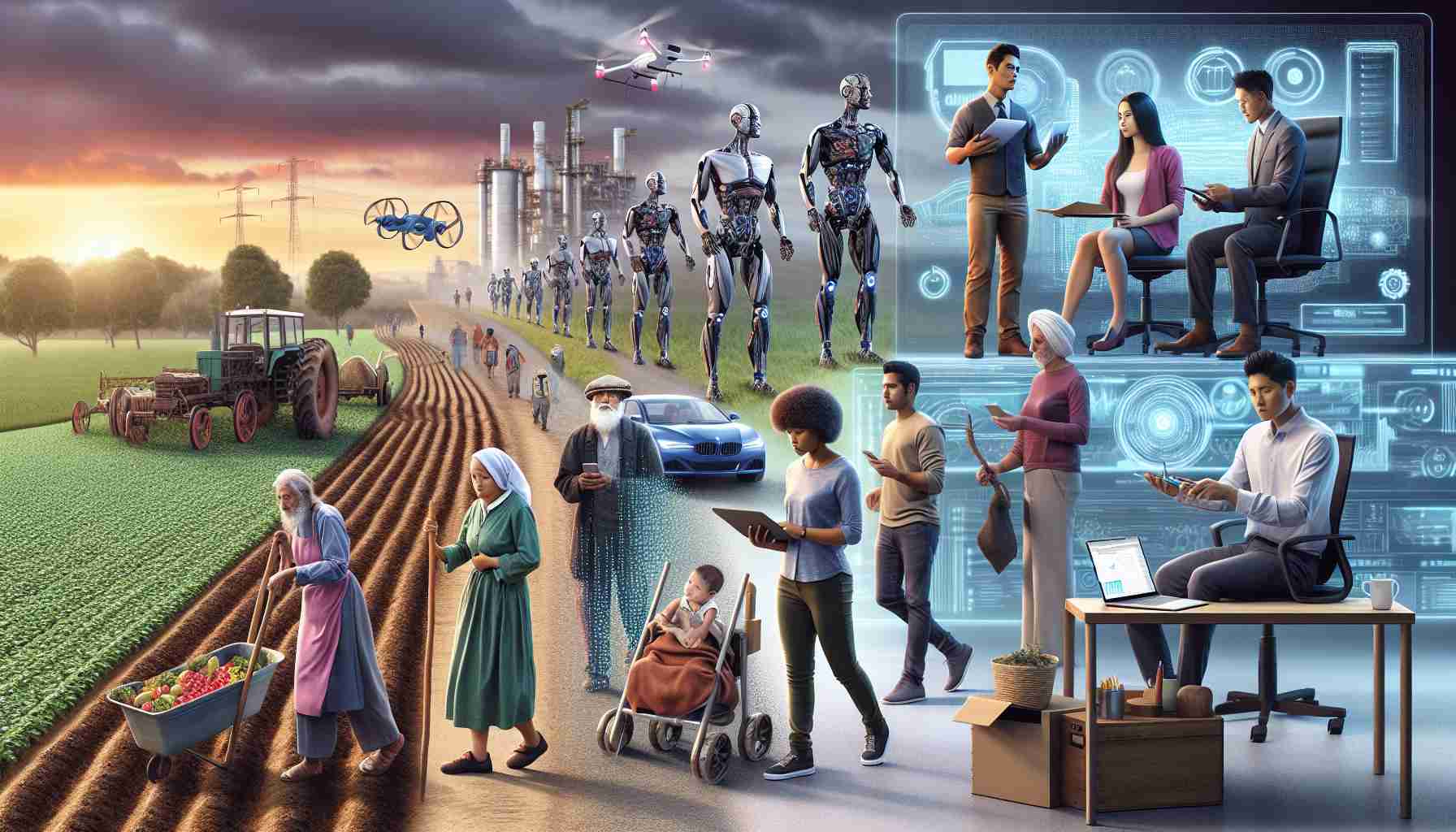The rise of Artificial Intelligence (AI) is transforming the landscape of various industries, signaling a new era of workforce dynamics worldwide. Major corporations, from tech firms to service providers, are actively integrating AI to leverage its capabilities, reflecting both excitement and trepidation about its influence on jobs. A pressing issue arises: will AI foster a significant number of job losses, or does it hold the potential for new opportunities?
Experts in the field share differing viewpoints regarding AI’s impact on employment. While it is evident that some roles are being phased out, others are emerging as AI reshapes job functions. For instance, routine tasks, including certain data processing and customer support activities, are poised for automation, maximizing efficiency and effectiveness within organizations.
Industry leaders emphasize the importance of upskilling. As companies evolve, there is an increasing demand for employees to acquire skills in AI, data science, and adaptability to keep pace with technological advancements. This proactive approach prepares the workforce for future roles that have yet to be defined.
A recent report from the World Economic Forum outlines an optimistic scenario for the future—anticipating that while AI may displace millions of jobs, it will also create significantly more positions, resulting in a net increase. The roles that require human intellect, creativity, and social interaction are expected to flourish, demonstrating that AI is not merely a replacement but a catalyst for a new workplace ecosystem.
Embracing the Future: Tips and Hacks for Thriving in an AI-Driven World
As Artificial Intelligence (AI) continues to evolve and permeate various industries, it brings with it a wave of changes that can be both exciting and intimidating. To navigate this new landscape successfully, here are some practical tips, life hacks, and interesting facts that can help individuals prepare for a future where AI plays an increasingly significant role.
1. Embrace Lifelong Learning
The rapid pace of technological advancement means that knowledge quickly becomes outdated. Dedicate time each week to learn new skills or expand your knowledge in AI-related fields. Platforms like Coursera and Udacity offer online courses on AI, data science, and machine learning that can dramatically enhance your employability.
2. Upskill in Soft Skills
While technical skills are essential, the demand for soft skills such as communication, creativity, and emotional intelligence is on the rise. AI may handle data-driven tasks, but uniquely human traits will become more valuable. Participate in workshops or join groups that focus on developing these essential interpersonal skills.
3. Network to Stay Informed
Join industry groups, attend webinars, and engage in online forums. Networking can provide insights into how your specific industry is adapting to AI and may reveal new job opportunities. By aligning yourself with others in your field, you can share strategies and stay ahead of the curve.
4. Leverage AI Tools
Make use of AI tools that can enhance your productivity and efficiency. Whether it’s using AI for data analysis or employing virtual assistants for scheduling, mastering these technologies will not only streamline your workflow but also make you more attractive to potential employers.
5. Stay Versatile and Adaptable
The ability to adapt quickly to change is invaluable in a technology-driven world. Keep an open mind about transitioning into new roles or industries as AI continues to reshape the job market. Consider diverse fields where AI can create opportunities, even outside your current expertise.
Interesting Fact: According to a report by the World Economic Forum, while AI is projected to displace around 85 million jobs by 2025, it is also expected to create 97 million new roles that require human skills—an indication of the shifting dynamics in the workforce.
6. Prioritize Your Mental Health
Transitioning to a new skill set or job role can be stressful. Make sure to take care of your mental health by practicing mindfulness, engaging in physical activity, or even seeking professional help if necessary. Maintaining a balanced mindset will help you face the challenges of a changing job landscape.
7. Explore Entrepreneurship
With AI enabling new business models, consider starting your own venture—whether it’s a tech startup or a service-based business that incorporates AI tools to deliver value. Innovation thrives on today’s technological advancements, and being an entrepreneur can offer exciting opportunities for those willing to take risks.
To further explore the impact of AI across industries and how to prepare for these changes, visit World Economic Forum, a reliable source for reports and insights on the future of work in the age of AI.
By proactively adapting to change and leveraging available resources, you can not only survive but thrive in an AI-driven world.






















